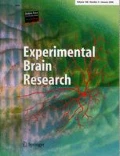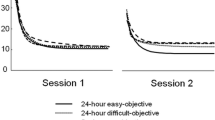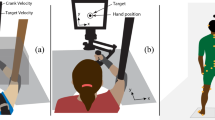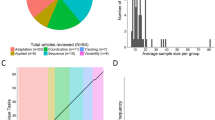Abstract.
Recent studies suggest that the human primary motor cortex (M1) is involved in motor learning, but the nature of that involvement is not clear. Here, learning-related changes in M1 excitability were studied with transcranial magnetic stimulation (TMS) while naïve subjects practiced either a ballistic or a ramp pinch task to the 0.5-Hz beat of a metronome. Subjects rapidly learned to optimize ballistic contractions as indicated by a significant increase in peak pinch acceleration and peak force after the 60-min practice epoch. The increase in force and acceleration was associated with an increase in motor evoked potential (MEP) amplitude in a muscle involved in the training (flexor policis brevis) but not in a muscle unrelated to the task (abductor digiti minimi). MEPs returned to their baseline amplitude after subjects had acquired the new skill, whereas no practice-induced changes in MEP amplitude were observed after subjects had overlearned the task, or after practicing slow ramp pinches. Since the changes in MEP amplitude were observed only after TMS of M1 but not after direct stimulation of the corticospinal tract, these findings indicate task- and effector-specific involvement of human M1 in rapid motor learning.
Similar content being viewed by others
Author information
Authors and Affiliations
Additional information
Electronic Publication
Rights and permissions
About this article
Cite this article
Muellbacher, W., Ziemann, U., Boroojerdi, B. et al. Role of the human motor cortex in rapid motor learning. Exp Brain Res 136, 431–438 (2001). https://doi.org/10.1007/s002210000614
Received:
Accepted:
Issue Date:
DOI: https://doi.org/10.1007/s002210000614




